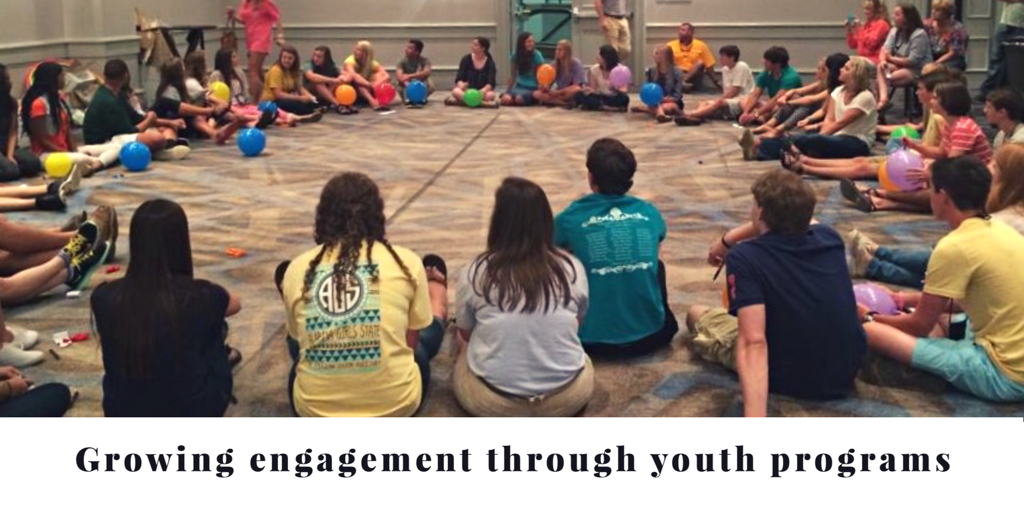
Special thanks to everyone who participated in the webinar I conducted for the Cooperative Communicators Association today. As promised, here’s the 8 question cheat sheet for planning a youth program. (handout-growing-engagement-through-youth-programs)
Youth programs are a great place to tell your story and build a future member/customer base, but before you begin it’s important to have a solid plan in place.
Step 1: Do you have management support? Effective programs, especially those you see running an extended length of time, aren’t cheap. Where will the budget come from? What goals can they help you achieve? Have you got data to back it up? Where will the staff come from?
Youth programs are a great way to boost how a community feels about you and drive satisfaction numbers. They are also a great way to help foster employee morale. You can also look at them as an investment in your future – these kids will be your future hiring pool.
Step 2: Do you have a clear set of expectations? Why are you doing this? Does it meet a community need? Do you need to build customer satisfaction? Does everyone on your team have the same set of expectations?
Step 3: How will you deliver on the chosen format? Do you have a clearly defined age group of participants? What type of facility will you need? How many can you accommodate? Will there be both academic and fun aspects of your camp? What is your theme?
Step 4: How will you fund the program? Will your organization fund the whole program? Will the attendees pay a fee? Will you find sponsorship?
Make sure you have a full and defined budget for your program. Kids need t-shirts, goodies, and snacks. Will you have to pay extra for IT/Wi-Fi/ AV services? Speakers can be anywhere from free to outrageous. Plan generously, it all adds up and there’s always the unexpected along the way.
Step 5: How will you staff the event? Youth events are not for everyone. Let’s face it – there are just some people who aren’t good with kids. You need people who aren’t afraid to talk with them and who’ll participate in the activities with them. You need people who are willing to connect and be real with the participants. Do you need to hire staff? Does the facility offer staffing options? Do you have interns? Who from your office can you pull that’s not in critical day to day function?
Step 6: Have you considered risk management? Everyone loves the fun stuff – speakers and activities. But there are serious considerations you need to account for when planning a youth program. A health statement covering allergies and medications a student might be taking is a good start. Multiple contact numbers for parents (home, cell, and work) are a must. You also need to consider liability insurance. I highly recommend you make the investment for the event. It’s not that expensive and it covers you if someone falls or worse.
Step 7: How will you recruit participants? With a new event, especially if it is taking place after the school year, you need to make sure the students have their hands on the information in January or February. Everyone is competing for their time in the summer (team practices, band, part-time jobs, mission trips, family vacations). Use all of your internal and external resources. Utilize social media. Take it to the school and hand it out. If you are at other local events, have the information available for parents and grandparents to pick up and take home with them.
Step 8: Did you plan and plan some more? There’s no manual out there for the perfect youth program. Make sure your agenda meets your set goals. Do you have back up plans for when a thunderstorm warning conflicts with your scheduled pool time? Do you have an activity you can use to fill time when the speaker quits 30 minutes before their scheduled time? What if the kids set off the fire alarms at 2am? (No really, that’s really happened.)
Following these 8 simple steps should set you on a path to planning a fun, educational event that will get your name and story in the minds of future members/customers and current ones.
5 tips for new grads starting their job search during the COVID-19 Crisis
No one can say just how long the economic downturn will last or exactly how large the impact will be on this graduating class. The key is focusing on what you can control, not what you can’t. Using this time productively will set you apart and you’ll appear more professional and confident than those who waste it on the couch. Here’s 5 tips for recent grads job searching now.